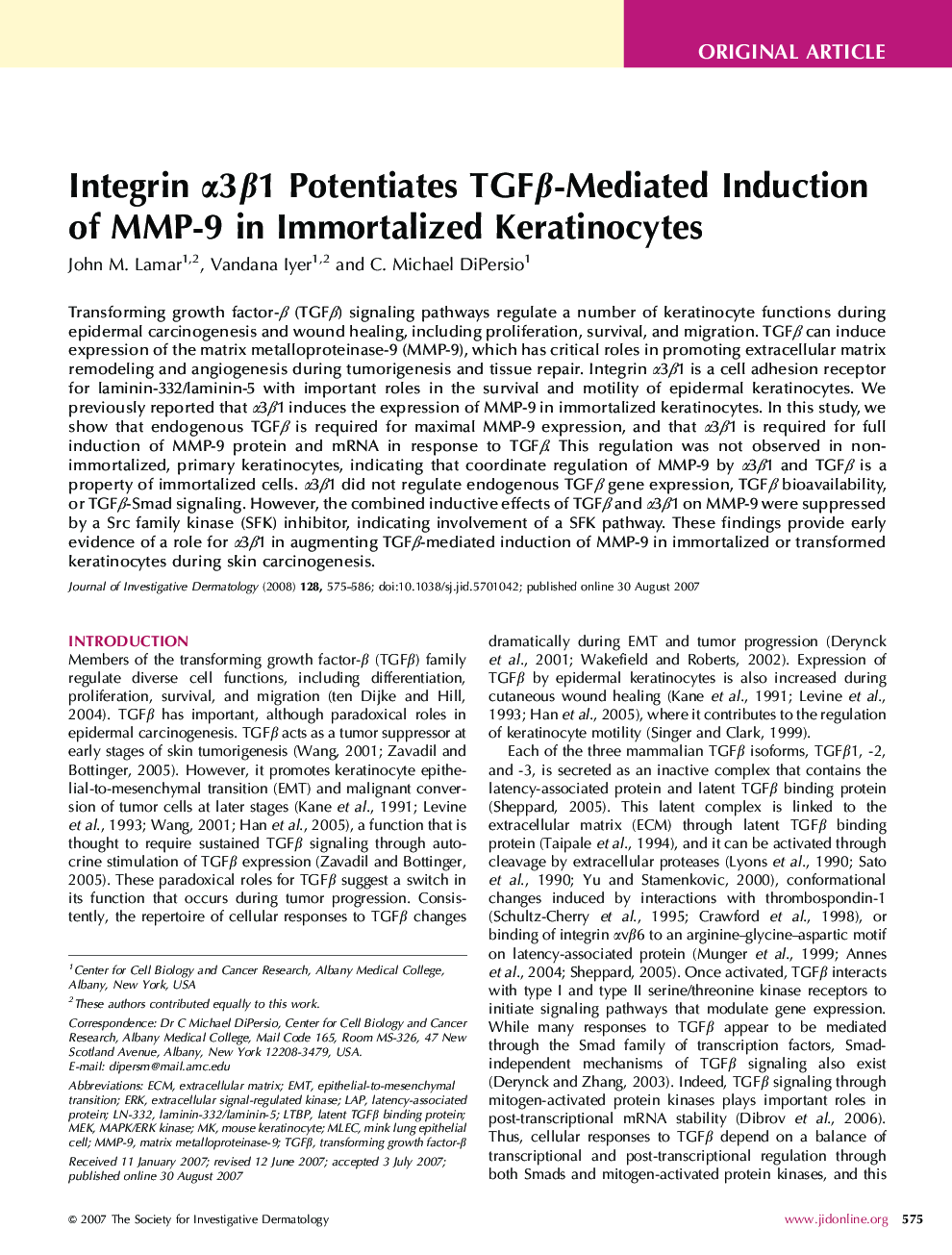| Article ID | Journal | Published Year | Pages | File Type |
|---|---|---|---|---|
| 3216700 | Journal of Investigative Dermatology | 2008 | 12 Pages |
Transforming growth factor-β (TGFβ) signaling pathways regulate a number of keratinocyte functions during epidermal carcinogenesis and wound healing, including proliferation, survival, and migration. TGFβ can induce expression of the matrix metalloproteinase-9 (MMP-9), which has critical roles in promoting extracellular matrix remodeling and angiogenesis during tumorigenesis and tissue repair. Integrin α3β1 is a cell adhesion receptor for laminin-332/laminin-5 with important roles in the survival and motility of epidermal keratinocytes. We previously reported that α3β1 induces the expression of MMP-9 in immortalized keratinocytes. In this study, we show that endogenous TGFβ is required for maximal MMP-9 expression, and that α3β1 is required for full induction of MMP-9 protein and mRNA in response to TGFβ. This regulation was not observed in non-immortalized, primary keratinocytes, indicating that coordinate regulation of MMP-9 by α3β1 and TGFβ is a property of immortalized cells. α3β1 did not regulate endogenous TGFβ gene expression, TGFβ bioavailability, or TGFβ-Smad signaling. However, the combined inductive effects of TGFβ and α3β1 on MMP-9 were suppressed by a Src family kinase (SFK) inhibitor, indicating involvement of a SFK pathway. These findings provide early evidence of a role for α3β1 in augmenting TGFβ-mediated induction of MMP-9 in immortalized or transformed keratinocytes during skin carcinogenesis.
